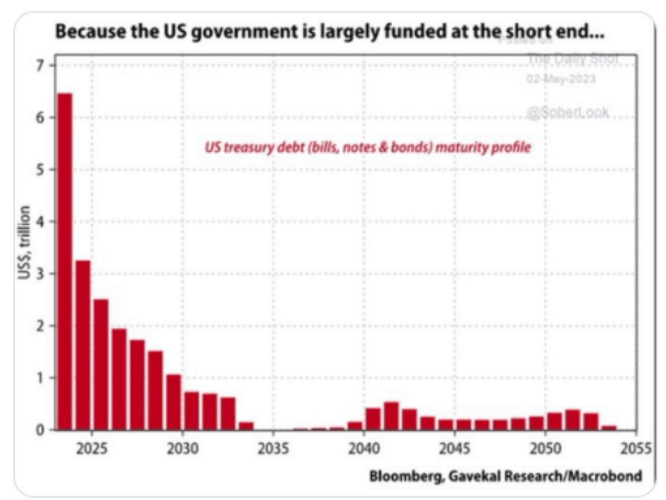 How rising interest costs impact government finances
How rising interest costs impact government finances Quick Take
According to the Founder of Equity Management Associates, Lawrence Lepard, in his EMA Q2 report, the escalating interest expense, rapidly nearing a run rate of $1 trillion, is a major cause of the expanding government deficit. These factors imply that the government’s interest payments are surpassing its expenditure on national defense, according to Lepard.
Lepard states that the U.S. Government has felt the pinch of the Federal Reserve’s campaign to raise interest rates. Much of the federal debt is tied up in short-term maturities, which are currently subject to about 5.3% interest. This is a stark contrast to September 2021, when many of these securities were tied to significantly lower interest rates, ranging from just 10 to 30 basis points.
He continues to say the U.S. Government’s dependence on the short-term bond market to underwrite most of its debt is compounding the issue. Gavekal Research/Macrobond data indicates that the Government will need to renew $6 trillion of maturing notes in 2023 and another $3 trillion in 2024.
Ultimately, Lepard remarks that this assessment doesn’t consider the potential market influx of approximately $1.2 trillion of bonds and notes that the Fed may sell if it continues with Quantitative Tightening. Consequently, the deficit pressure could intensify with these looming interest costs and debt renewals.



















































